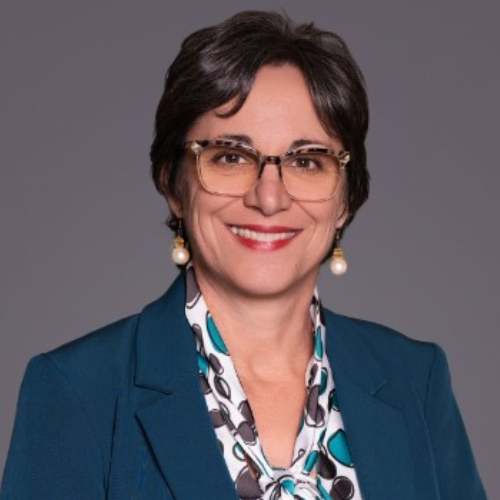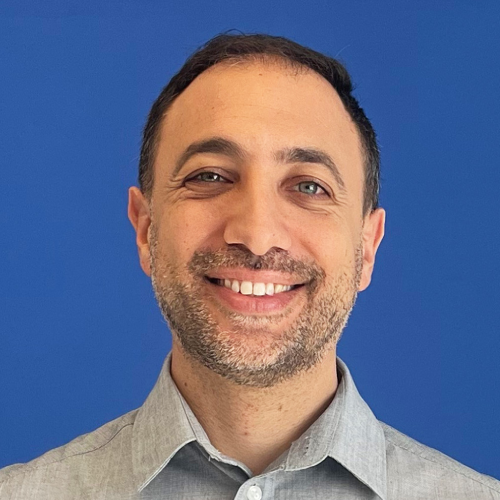


Paloma Rodriguez is the Director of the Office of Global Learning at the University of Florida, International Center. The office runs a plethora of internationalisation at home initiatives including virtual exchange.
Sebastian Rodriguez – who points out that he and Paloma are not related despite sharing the same surname – is the finance manager and handles all the fiscal and financial matters at the University of Florida International Center.
An encyclopaedic repertoire of virtual exchanges
A cursory glance at the university website reveals dozens of virtual exchange projects that have taken place and continue to take place at the university. The list includes partners from myriad countries around the world. You can see examples here.
Paloma explains that her institution became interested in the concept of COIL/VE back in 2018. This was at a time when she was championing initiatives aimed at internationalising the curriculum.
“We got in touch with UNICollaboration at that time,’, she says, “and UNICollaboration helped to deliver the very first professional development in VE.”
She wasted no time at all. And already by 2019, her institution had developed their own VE professional development course offered to faculty members.
“We’ve been implementing a number of virtual exchange courses ever since. Currently, we run 30-35 VE courses per academic year. They cater to about two thousand students per year with counterparts all over the world.”
The path to virtual exchange success
“We didn’t do it alone,’ she continues, ‘success is a combination of many things. Being in the right place at the right time firstly. I had institutional buy-in and some funding to get this started. Collaboration is second. We were able to partner with other departments within the university. These included: with academic technologies, as well as with the Center for Teaching Excellence and the Center for Latin American studies. Thirdly, what you offer has to fill a gap. And the gap in our case was something that had already been identified. We knew that in the area of intercultural communications, students found it difficult to communicate with people who were not like them. Because of this already identified situation, we decided to use VE to fill it.
“It was a combined strategy that led to success and that’s why we keep growing.”
Well established virtual exchanges
Some virtual exchanges at the university are so well established they have already had 6-7 iterations. There have been over 100 implemented since 2019. These projects are embedded into existing courses and have enduring partnerships which enable them to continue and evolve over time.
The latest success has been with doing VE for administrative and professional staff at the university. This is because all staff can benefit from participating in virtual exchange.
Paloma says, “Virtual exchange doesn’t exist as a separate strategy from the internationalisation at home strategy, so we are using VE as an integral part of that strategy. Our VEs are embedded in courses and also in the co-curriculum and in all aspects of student life. Now they also engage staff.
“Doing COIL for staff helps colleagues to learn from each other. We use VE to pair up our professional staff – from finance, marketing, student life etc, with counterparts at other institutions abroad. We do a 6-8-week VE so they can talk about what they do and the challenges they face. The content is the profession and the outcomes are intercultural and professional. We include many intercultural activities.”
COIL/VE FOR STAFF: A testimonial
Sebastian from finance explains, “I partnered with a counterpart in Valencia who was actually from Ukraine, Halyna Zubrytska. Finance is an area where the admin can be very different and hard to compare. For this reason, we ended up doing two projects together which proved very fruitful as we were having trouble initially finding common ground.”
Sebastian explains how his counterpart needed to enhance an internal process.
“She was getting a lot of emails as she requested information from the students. We concluded that, in this case, it would be better for her to use a QR code as a solution to the problem. We arrived at this decision after we shared screens and tools during our VE. This enabled me to see better how she worked. I was able to point things out from my perspective that could help her find solutions to her issues.
“So, what we had in common was using some of the same tools, technologies and software. But we used them differently in our respective institutions.”
Sebastian explains how this process developed into enhancing her processes internally. In return, Sebastian says he needed a ticketing system.
“I had to explain the situation to her. This process forced me to explain and analyse things in a better way so as to enable someone from the outside to understand. In this way, we found ourselves looking at issues from different perspectives and I have to say that this was very helpful – explaining it to someone who has no idea what you are talking about. It was a great experience.”
Sebastian continues, “We were left to ourselves to collaborate during our virtual exchange. We were very flexible and therefore, we were motivated. Flexibility was key and as a result, the outcome was excellent.”
“Motivation is high, chimes in Paloma. ‘supervisors are invited to understand what the programme is about and encouraged to participate. We hope to work with HR later on too, but for now, we provide digital badges for participants, we send letters of invitation, and this is how we recruit. We do showcases too, like Sebastian who showcased what he had done.
Paloma explains how this exchange is not merely a virtual one, but also a physical mobility takes place. Their counterparts in Valencia have visited them in Florida and vice versa as they also went to Valencia!
Scaling up COIL/VE for staff
“Right now, says Paloma, ‘we are working with UNESP in Brazil and we continue our collaboration with CEU in Valencia. COIL/VE for Staff has so many intra-institutional benefits. People who had never worked together before, or who didn’t know the other existed, are now aware and work together. I can say that they are coalescing around the I@H strategy and this is helpful to our mission. There are also inter-institutional benefits because, for example, we currently have some colleagues from Valencia visiting us, from the leadership team.
“A follow-up survey about the virtual exchange demonstrated how the participants had become more comfortable speaking with others that are different from themselves and they had found more creative solutions. Above all, they felt, as staff members, they had become more visible and their voices were being heard and that they were participating in something international.”
Sebastian says that doing the virtual exchange makes you reflect better on your own institution. At the same time, you learn about the culture of another institution and how they work. He says this is really helpful.
“The cultural aspect is very important and I can apply my learnings to my own context.”
The future of virtual exchange at Florida
“We are always trying to improve,’ explains Paloma, ‘and provide further intercultural competence training which Sebastian has just participated in. It’s a semester-long train-the-trainer programme for staff. Combining that with COIL for staff has been amazing and Sebastian and I have many more ideas about how to enhance job related issues and improve intercultural competence.”
Advice and tips for other institutions
Paloma says they are creating a website with resources for everyone and have already done some webinars to spread the word too.
“We want to provide more workshops so we can share our learning with everyone. It isn’t complicated if you know a bit about VE…it’s only a bit different as it’s directed at staff. So maybe it’s a good idea to partner with your human resources and professional development department and give it a try. It could be 5-6 weeks and you will discover that you can harness the talent of all of your colleagues.”
Sebastian agrees that professional development is key for staff.
“You feel valued and you are learning through real life experiences…..these are all added benefits for sure.”
